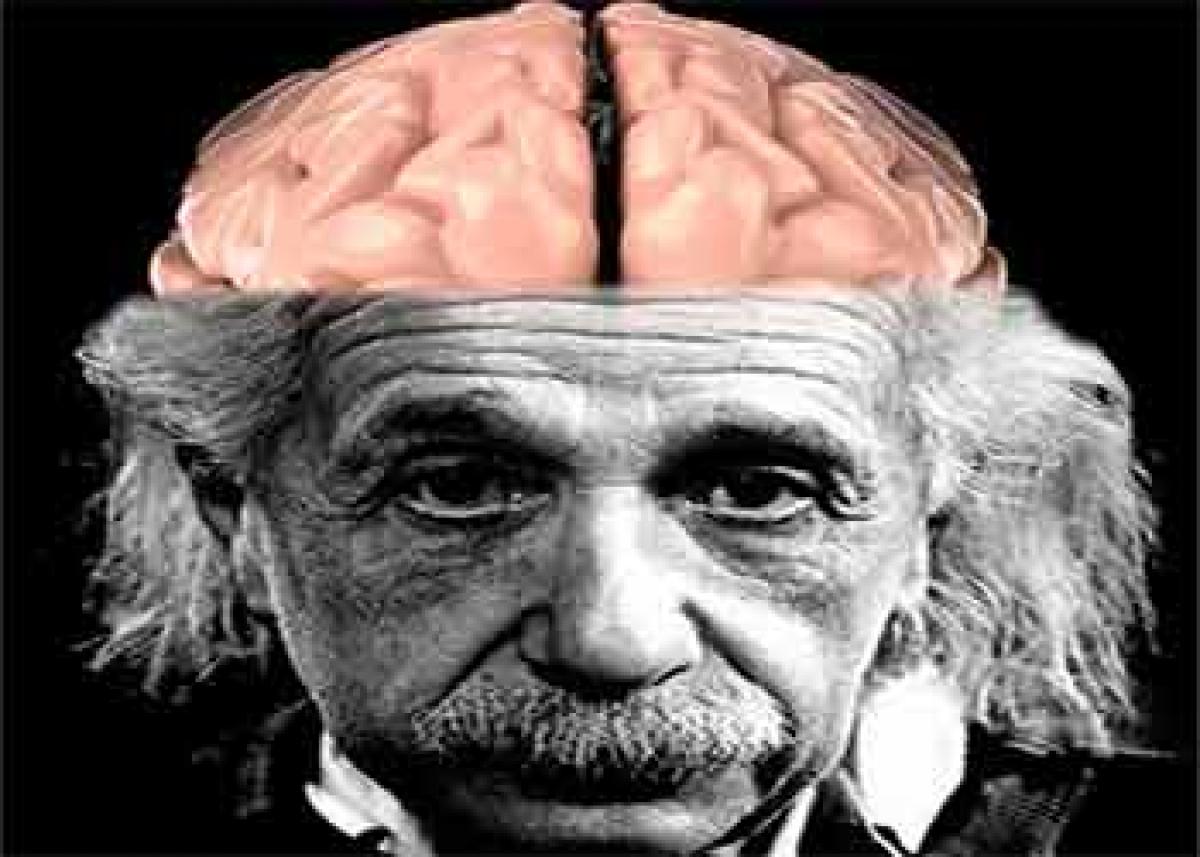Live
- Ramraj opens new showroom at Poranki
- Road repairs, infrastructure priority: Minister
- Swarna Andhra@2047
- CM Revanth pitches for Railway Coach Factory at Kazipet
- ICU Ward opened at district hospital
- Pushpa Actor’S Action-Packed Day: Lights, camera, arrest
- National Lok Adalat today
- Teacher Manga Rani selected for national workshop
- MyVoice: Views of our readers 14th December 2024
- Soros & Gandhis links raise many disturbing questions
Just In

Intelligent people have brains that are wired differently, according to a new Oxford study which suggests \'smart minds\' are more likely to be happy, well educated and earn more.
.jpg) London: Intelligent people have brains that are wired differently, according to a new Oxford study which suggests 'smart minds' are more likely to be happy, well educated and earn more.
London: Intelligent people have brains that are wired differently, according to a new Oxford study which suggests 'smart minds' are more likely to be happy, well educated and earn more.
A team of scientists led by Oxford University's Centre for Functional MRI of the Brain studied the connections in the brains of 461 people and compared them with 280 different behavioural and demographic measures that were recorded for the same participants.
They found that variation in brain connectivity and an individual's traits lay on a single axis - where those with classically positive lifestyles and behaviours had different connections to those with classically negative ones.
The team used data from the Human Connectome Project (HCP). The HCP is pairing up functional MRI scans of 1,200 healthy participants with in-depth data gained from tests and questionnaires.
So far, data for 500 subjects have been released to researchers for analysis. The researchers took the data from 461 of the scans and used it to create an averaged map of the brain's processes across the participants.
The result is a connectome for every subject - a detailed description of how much those 200 separate brain regions communicate with each other, which can be thought of as a map of the brain's strongest connections.
The team then added the 280 different behavioural and demographic measures for each subject and performed a 'canonical correlation analysis' between the two data sets - a mathematical process that can unearth relationships between the two large sets of complex variables.
They found one strong correlation that relates specific variations in a subject's connectome with their behavioural and demographic measures.
The correlation shows that those with a connectome at one end of scale score highly on measures typically deemed to be positive, such as vocabulary, memory, life satisfaction, income and years of education.
Meanwhile, those at the other end of the scale were found to exhibit high scores for traits typically considered negative, such as anger, rule-breaking, substance use and poor sleep quality.
The researchers point out that their results resemble what psychologists refer to as the 'general intelligence g-factor' - a variable used to summarise a person's abilities at different cognitive tasks.

© 2024 Hyderabad Media House Limited/The Hans India. All rights reserved. Powered by hocalwire.com







